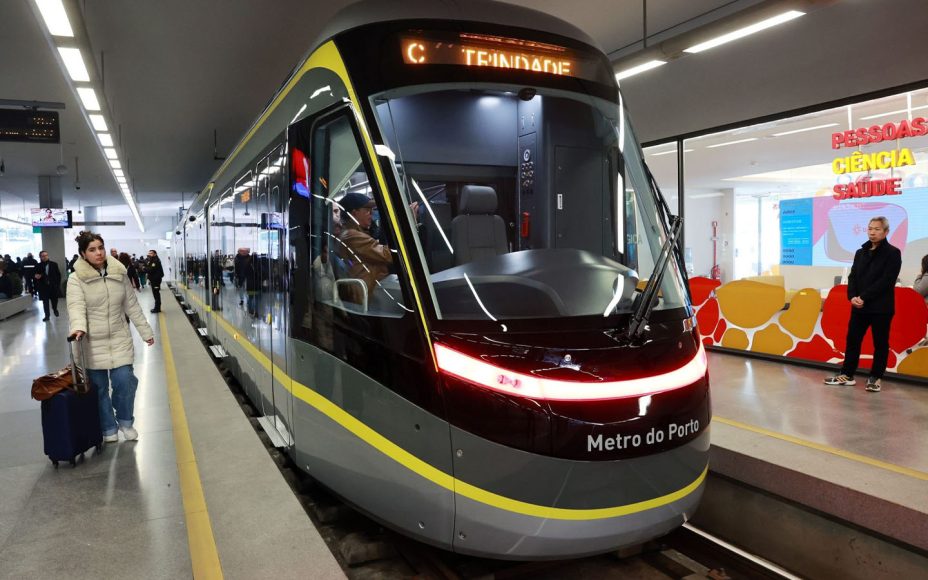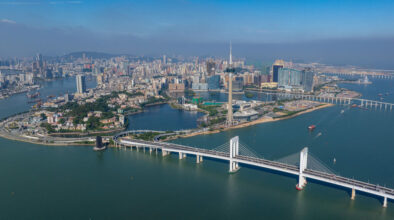This year marks the 45th anniversary of diplomatic relations between China and Portugal. Over that period, transportation has taken an increasingly central role in the two countries’ bilateral ties. Chinese mobility solutions that get people moving in a more environmentally friendly way have helped shape Portugal’s urban infrastructure, boosting tourism and local businesses along the way.
Porto, Portugal’s second biggest city, has become the country’s epicentre for Chinese mobility systems. In December, 15 new Chinese-made trams entered into Porto’s service – the first batch of an 18-tram deal between Metro do Porto and China’s CRRC Tangshan. One of the trams had two important passengers on its inaugural trip: Portugal’s newly resigned prime minister, António Costa, and the city’s mayor, Rui Moreira.
The four-carriage trams are “a necessary response to a growing demand,” Moreira has noted. He praised their comfort levels, spaciousness, and accessibility. “When we have this network prepared and complete, it will surely be a huge gain for the population, for the future of our city,” he said. The final three trams are set to be commissioned before the end of 2024.
A 50 million euro deal
The history of CRRC Tangshan dates back to the 1880s and the Beijing-headquartered company now manufactures more rolling stock than anyone else in the world. As well as trams, CRRC Tangshan builds high-speed trains and subway cars. Its Porto trams are considered to be China’s first urban metro project exported to the European Union. The first ones actually arrived at the end of 2022, then were subjected to a year’s worth of extensive testing before opening their doors to the public.
The deal between Metro do Porto – the entity running the city’s light rail public transportation network – and CRRC Tangshan was reportedly worth about 50 million euros. Signed in 2020, the contract requires the Chinese company to carry out maintenance on the trams for the next five years. The new trams have seven double doors on each side, a big improvement on Porto’s old trams that have between four and six. While CRRC Tangshan’s models make up a small percentage of Porto’s 120-strong fleet of trams, their more aerodynamic designs will make them stand out. Metro do Porto’s president, Tiago Braga, has said by the end of the year, the city’s trams will be serving almost 80 million customers.
A few days after his ride on the Chinese tram, the demissioned prime minister returned to Porto to sign a contract that will see a brand new light rail line built for the city. Costa used the occasion to underline investment’s “absolutely critical” role in the future of urban mobility. Stressing that cities took about 50 years to adapt to the car, the prime minister warned that Portugal “has much less than 50 years” to prepare for cities without cars.
Costa also revealed plans to invest a further US$1 billion into key city’s public infrastructure. “This means investing more and more in alternative modes of mobility and, in particular, in public transportation,” he said. Costa noted that it was essential to keep public transport affordable for locals, which meant being financially savvy. “Quality public transportation allows us to reinvent the city, reinvent travel in the Metropolitan Areas without excluding anyone,” he added.
Zhongtong Bus: fuelling the electric revolution
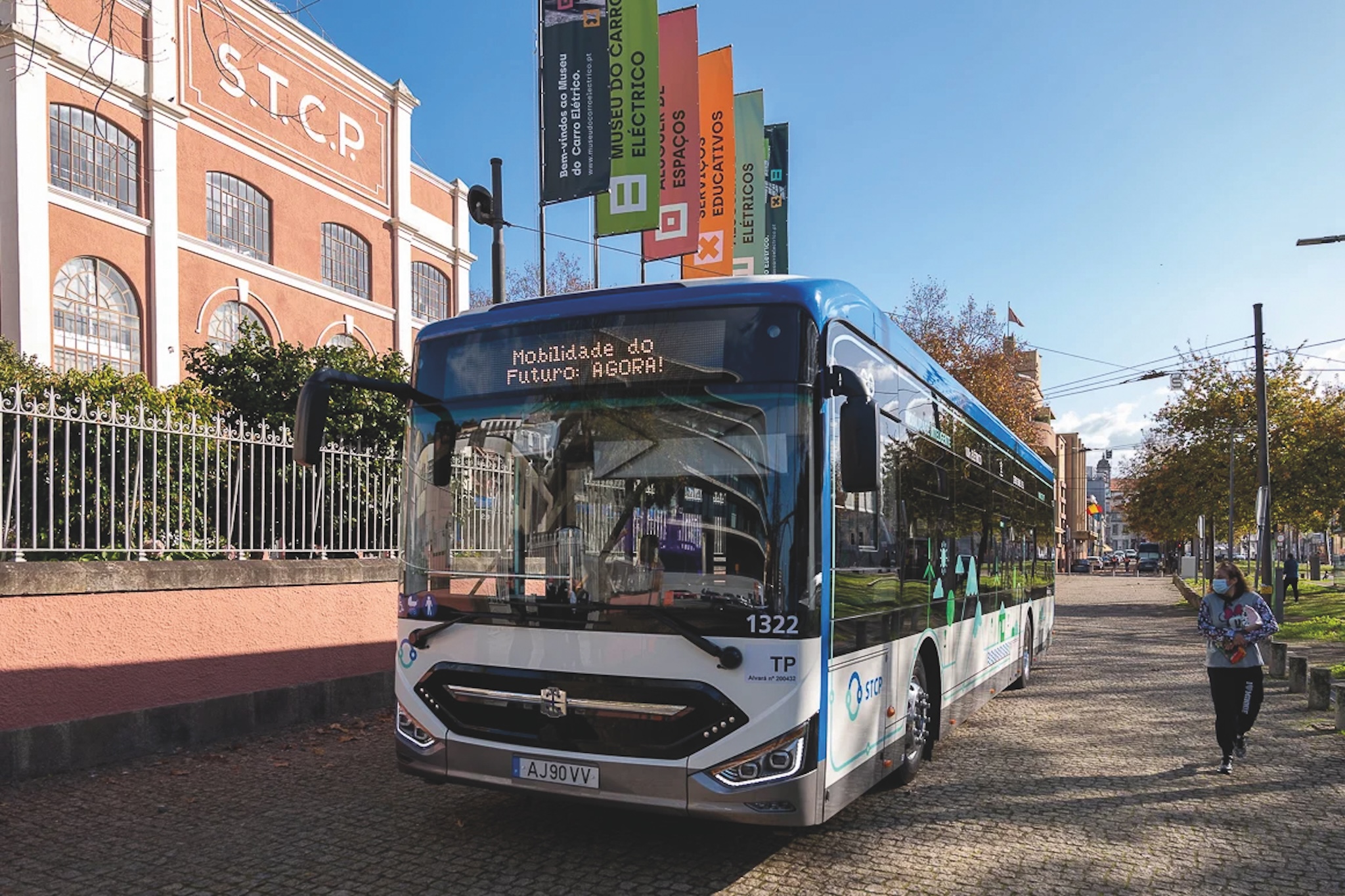
There’s another Chinese company near the heart of Portugal’s public transportation system: Zhongtong Bus. In January 2023, Porto’s public bus operator STCP contracted Zhongtong Bus through its Portuguese representative, Energia Fundamental-Mobilidade Elétrica, to supply 48 fully electric buses and a charging station with 24 double chargers. The contract is worth almost 20 million euros.
The city of Coimbra, in the country’s centre, is set to receive its first electric Zhongtong Bus in February. The 18-metre, articulated bus will be part of Coimbra and surrounding areas’ new fully-electric public transport system, known as the Mondego Mobility System (MMS), after undergoing an initial test phase. Energia Fundamental-Mobilidade Elétrica’s contract to supply electric buses and charging stations for MMS is worth 40.5 million euros. It plans to start operations with a fleet of 35 buses, with the option to purchase an additional five buses from Zhongtong Bus if required.
According to Costa, MMS will help “deeply transform” the urban fabric of Coimbra through improving the city’s public transport system. He added that the electric-nature of its
buses would “remove something like 17,000 tons of CO2 that we continue to emit annually” and therefore be a win for the planet.
Owing to the inroads it is making with Portugal’s mobility projects, Zhongtong Bus has become the best selling bus brand in the country, according to recent figures from the Portuguese automobile association. With 209 units delivered in 2023 – mainly for public transportation – the Chinese company has surged past popular European bus brands Mercedes-Benz and Iveco (which have seen sales decrease by 74 and 70 percent, respectively, in Portugal).
Industry follows exporters to Portugal
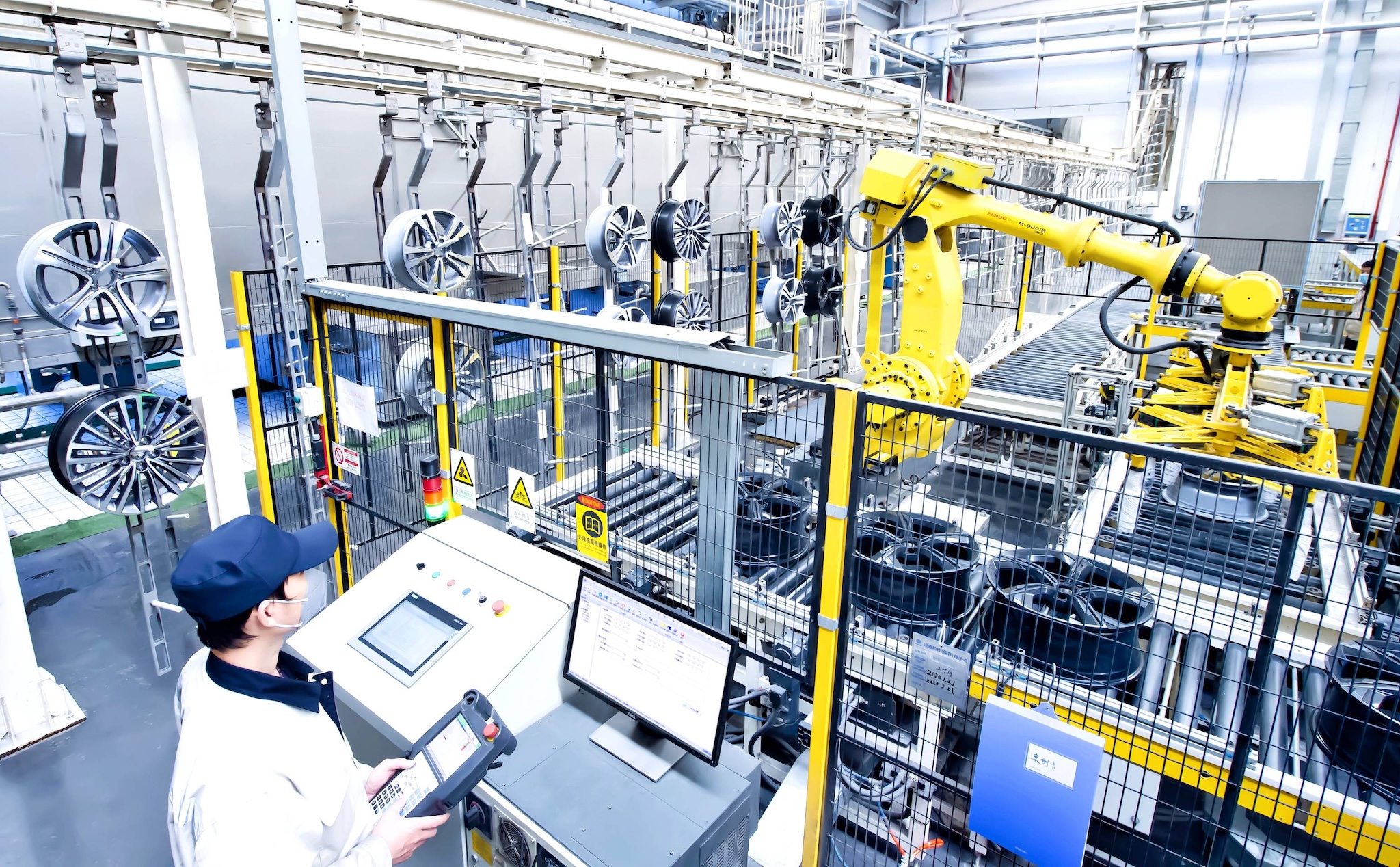
Chinese companies aren’t just exporting their ready-made vehicles to Portugal. One manufacturer – CITIC Dicastal – is preparing to build an automotive components factory near the city of Águeda, in northern Portugal. This 180 million euros investment by the Qinhuangdao-headquartered group will reportedly create up to 600 jobs in the region, something Águeda’s mayor has hailed as “great news”.
Xuzhou-headquartered XCMG Machinery, meanwhile, is also expanding its Portuguese presence. In August last year, the state-owned heavy machinery manufacturer signed a Memorandum of Cooperation with Martifer, a Portuguese construction company with a focus on renewable energy sectors.
XCMG’s vice president, Liu Jiansen, said the partnership would boost the Chinese company’s already respected reputation in Europe and demonstrate its commitment to greener global development. “XCMG will fully follow the path of international and sustainable development and will take the lead in reducing carbon and promoting a roadmap towards carbon neutrality,” he said. China’s ambassador to Portugal, Zhao Bentang, has said that XCMG’s partnership with Martifer represented a new milestone in Sino-Lusophone commercial cooperation.
Moving people cross-borders
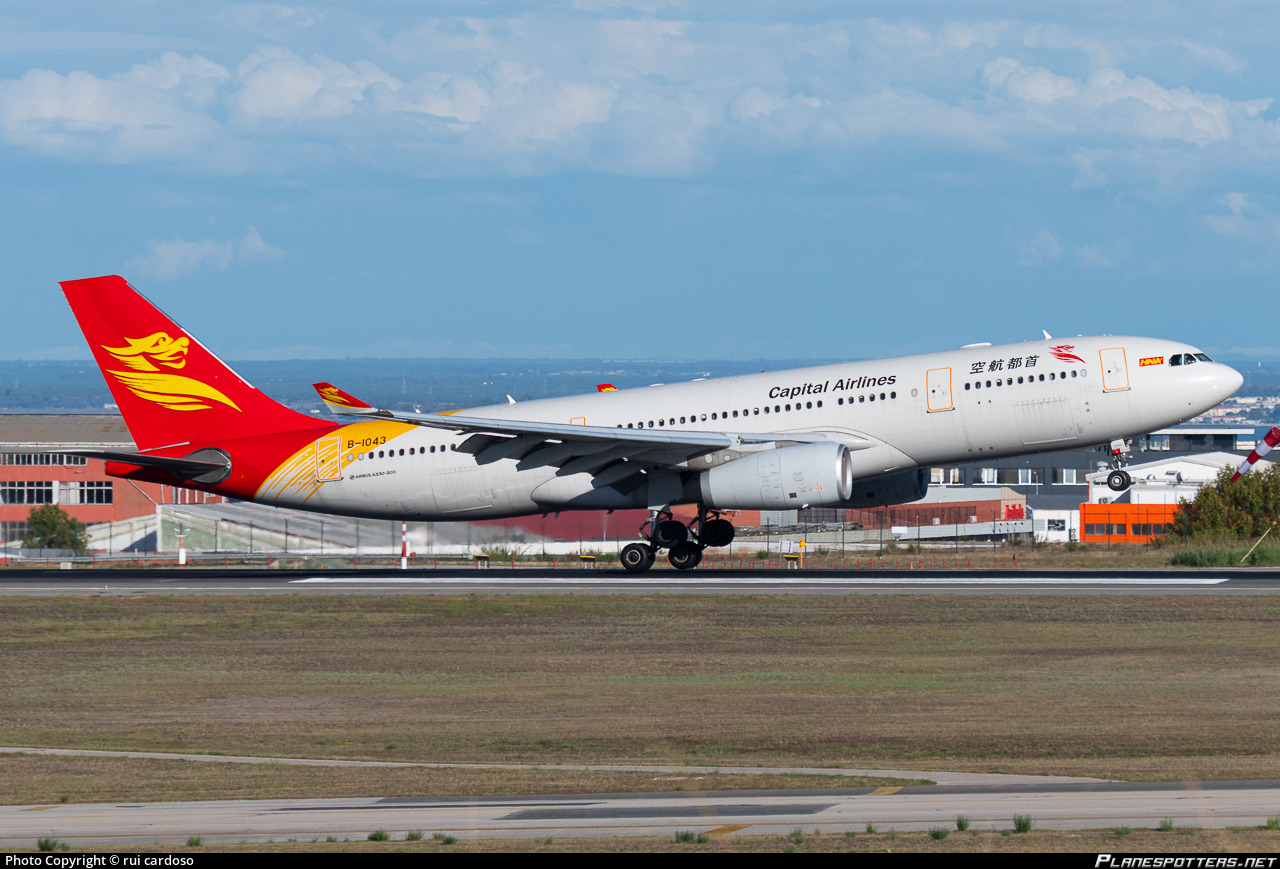
As China and Portugal’s transportation ties flourish, tourism between the two countries is also rebounding in the wake of a slump caused by the Covid-19 pandemic. Last year saw more than 200 percent growth in the number of Chinese visitors to Portugal, when compared to 2022 – according to data from the Chinese embassy in Lisbon. Meanwhile, the number of visas issued by the embassy to Portuguese nationals wanting to visit China jumped by 500 percent. That latter figure was double the number of visas issued between 2020 and 2023.
The Chinese authorities are aiming to boost the country’s foreign travel links, including with Portugal. As such, the number of direct flights between Lisbon and Hangzhou, the capital of Zhejiang Province, is set to increase to four per week – on Tuesdays, Thursdays Saturdays and Sundays (up from the current two). Beijing Capital Airlines operates this route, the only direct flight between China and Portugal.
Ambassador Zhao has promised travellers that the process around getting a visa for China is being simplified. Applicants can now submit the documentation directly to the consulate’s Visa Centre during opening hours, and should be granted a visa within four days. Expedited emergency services are also available. “Many of our Portuguese friends shared that, previously, [obtaining a Chinese visa] was time-consuming, but now they can apply and get a visa in less than a week, making travel to China much more convenient,” Zhao told the Portuguese press.
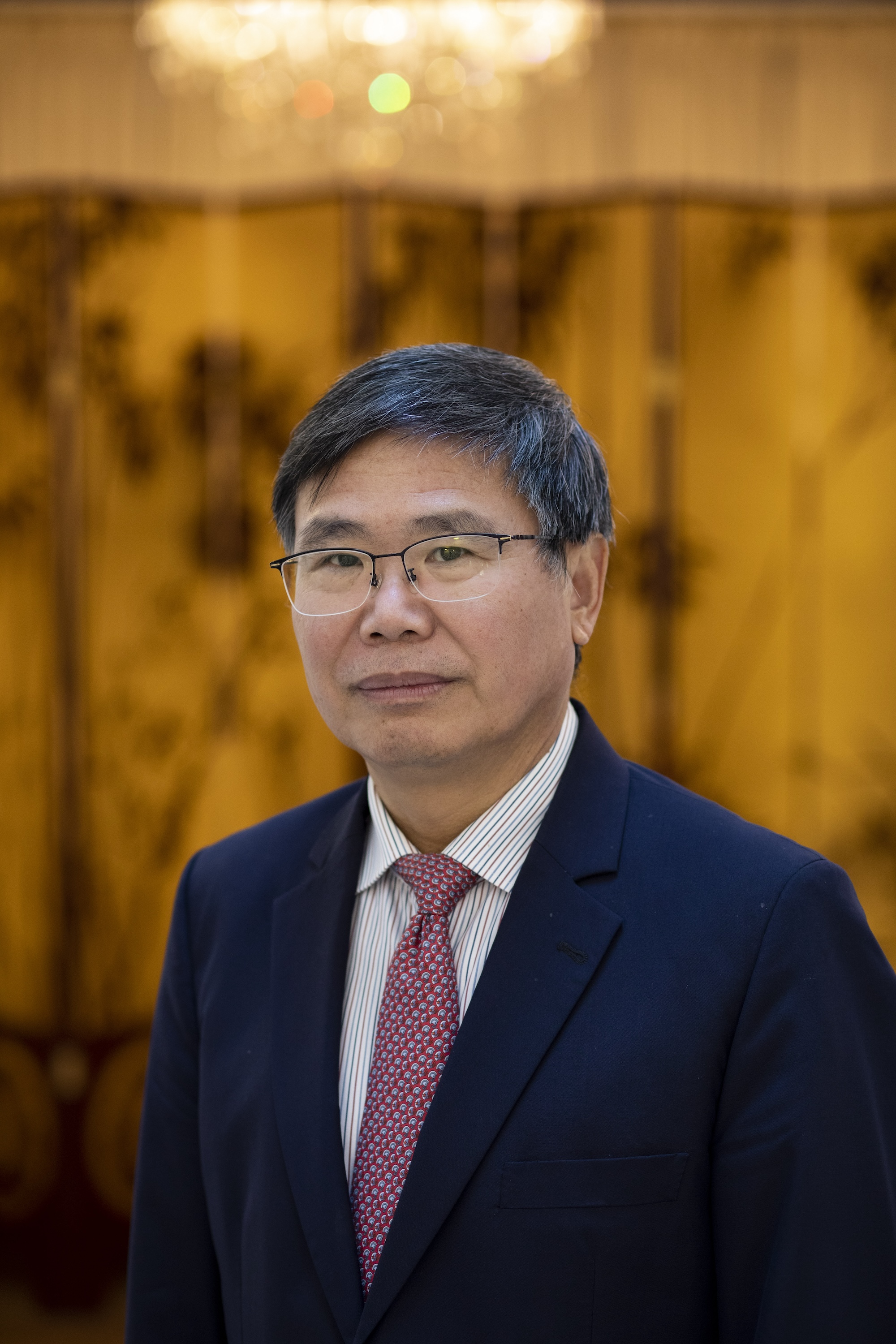
Portuguese passport-holders, along with a wide selection of other nationals, can now also transit through many Chinese cities without the need to apply for a visa. “China’s doors do not stop opening, and the Chinese government and people welcome people from all over the world who continue to come to China for business, investment and tourism”, Zhao said.
Business is evidently booming between China and Portugal, with a number of ambitious commercial mobility endeavours afoot – along with surging numbers of bilateral tourism.
